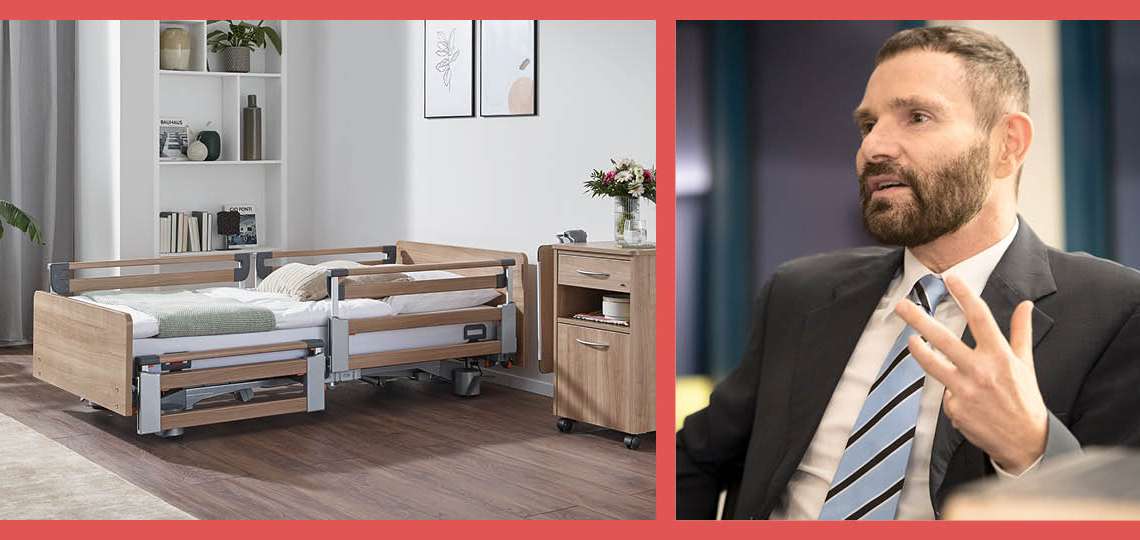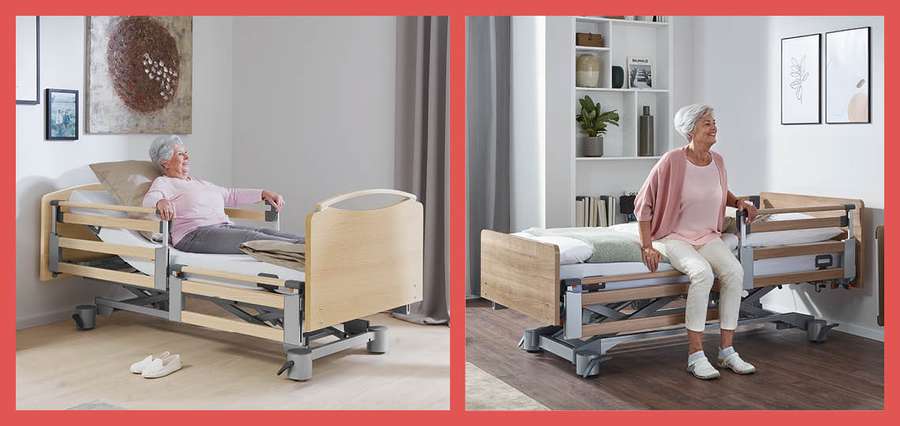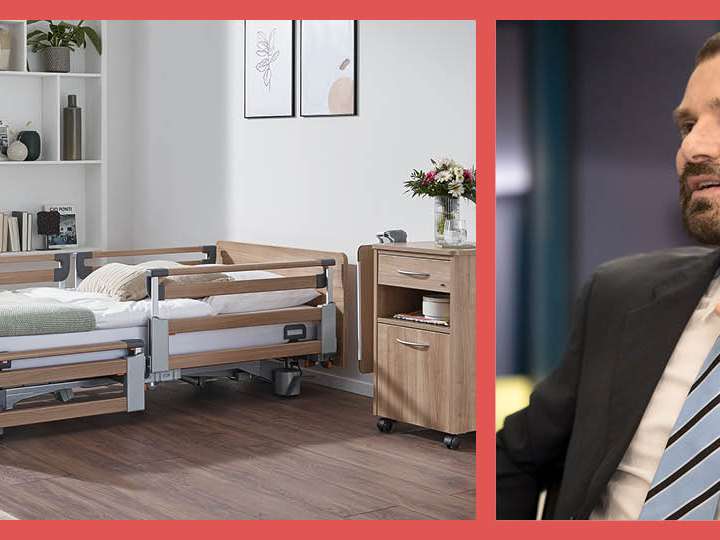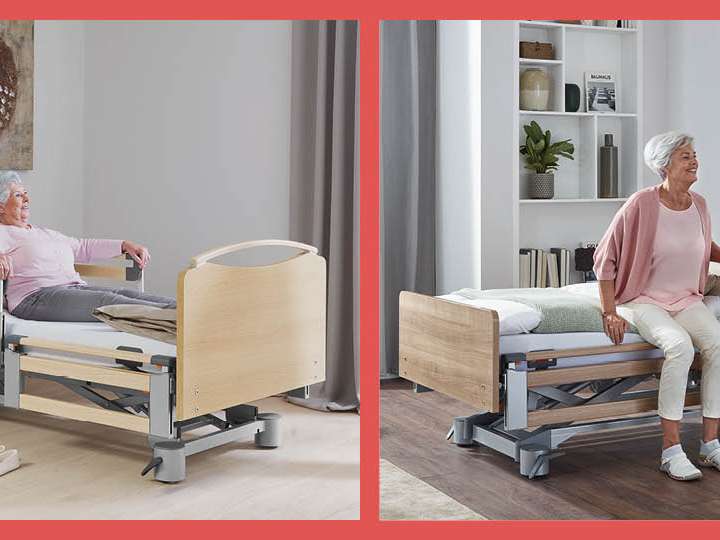
Are split safety sides a deprivation of liberty safeguard?
German nursing law expert Prof. Dr. Volker Großkopf explains a German landmark court decision
Protecting a resident who is at risk of falling and preserving their freedom are often difficult to reconcile. Safety sides on the care bed help to prevent falls – but how can mobility still be maintained? What are the current legal requirements for the use of safety sides in Germany? We talked about this with the renowned nursing law expert Prof. Dr. Volker Großkopf from Cologne. The occasion for this exchange was a ruling by the Brandenburg District Court on the subject of "deprivation of liberty by caregivers".
The ruling with the file number 85 XVII 80/21 dates from March 2022 and also explicitly deals with split safety sides. Professor Großkopf points out the new legal certainty within the German nursing sector that has arisen as a result of this ruling, which he considers very positive.
Split safety sides are usually designed in such a way that the head-side element covers slightly more than 50 percent of the mattress base and thus provides protection in accordance with the German safety standards for nursing care. If the foot-side element is not raised, the resident can in principle leave the bed via the lower half of the mattress base and move freely. So, are split safety sides a deprivation of liberty safeguard or not? Does their use require the consent of the guardian or guardianship court in the case of an incapacitated resident?
It depends on the mobility of the resident or patient
The new German ruling states: "It depends on the resident or patient. If a person in need of care who is capable of walking is able to leave the bed independently via the side of the foot end and to move from A to B at will, the use of the split safety sides is not a deprivation of liberty. However, if a resident who is able to walk can no longer stand up on their own or slide towards the foot end and therefore cannot leave the bed, this is very much a deprivation of liberty.

How does the nursing home or hospital legally protect itself in the event of such a deprivation of liberty? If the resident or patient is capable of consent, they can and should give their consent themselves. Professor Großkopf explains: "In Germany, the consent of the patient/resident with capacity to consent to a deprivation of liberty safeguard excludes the offence of deprivation of liberty according to § 239 of the German Criminal Code (StGB). Consequently, bed safety sides should always be applied with the consent of the person concerned who has the legal capacity to consent, irrespective of whether it is a split or a full-length bed safety side." Professor Großkopf specifies: "To preserve evidence, the consent should be recorded in the documentation.
Who must consent to a deprivation of liberty safeguard in Germany?
But what is the legal situation in Germany in the case of an incapacitated person in need of care who urgently requires protection through a deprivation of liberty safeguard?
In this case, the consent of either the guardian, the health care proxy or – as of 1 January 2023 – the spouse is initially required. The newly introduced legal right to represent a spouse in Germany requires a medical certificate that the represented spouse is incapable of making decisions. However, one cannot represent one's spouse indefinitely: The power is limited to six months, after which an official health care proxy is again required.

The consent of the named persons themselves is also not valid indefinitely. If a deprivation of liberty safeguard is used on a regular basis, e. g. safety sides every night, the guardianship court must give its consent. The same applies in the case of continuous use for more than 24 hours. The deadlines are even stricter in the case of fixation. Here, the guardianship court must be informed immediately if the fixation lasts longer than 30 minutes.
In Germany, split safety sides on hospital and care beds are therefore not a universal recipe for ruling out the use of deprivation of liberty safeguards in every case. But they are in the many cases in which the resident or patient can leave the bed on his or her own feet. And it is precisely in these cases that they make a valuable contribution to maintaining the health and quality of life of the person in need of care.



